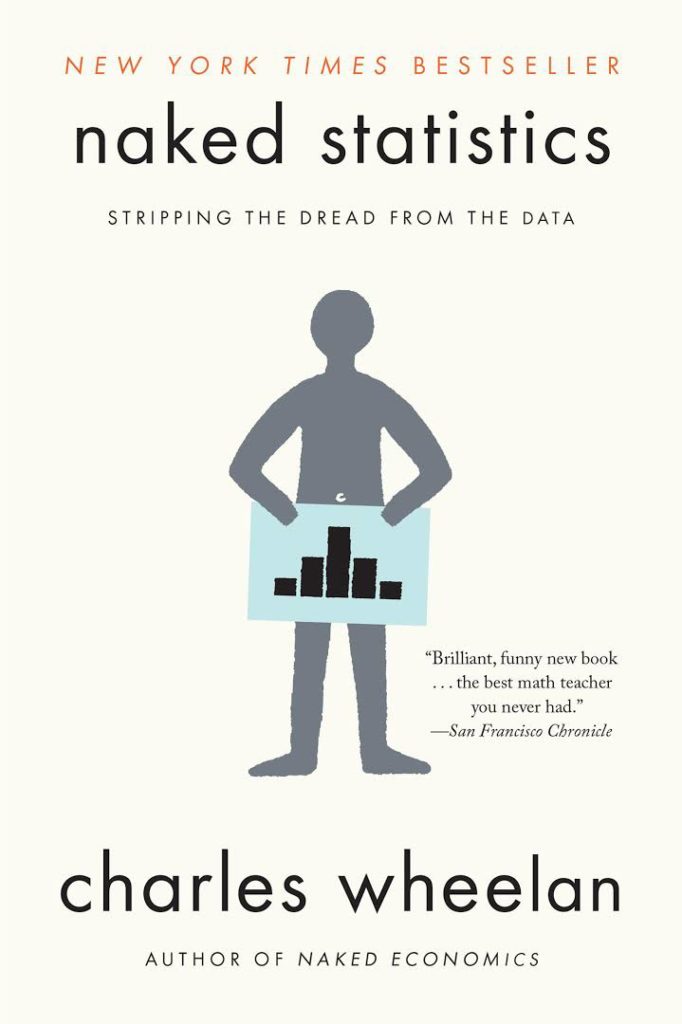Bill’s Pick:
May 2014
Naked Statistics
Charles Wheelan, Published 2014
Sometimes it’s good to get out of your comfort zone. Charles Wheelan’s Naked Statistics: Stripping the Dread from the Data (Norton, 2014) is a rewarding opportunity to do so. If you are not a pollster, researcher, or student, you probably don’t have a burning desire or need to think about the difference between a mean (the average of a group of data) and a median (the point that divides a set of numbers or observations in half, so that half are above it and half below it). But, if you pick up his book, which is now available in paperback, that’s where you will start. At the finish, after moving through probability, the central limit theorem, and inference, you will have an understanding of regression analysis, which Professor Wheelan describes as “an awesome statistical tool . . . that enables us to find . . . in large data sets” key patterns that are important to research in medicine and the social sciences.
The writing is crisp and clear with a variety of practical and humorous examples, not the least of which is the continuing saga of two busloads of travelers – a group of marathon runners and another group composed of sausage festival participants. And, for those of us of a certain age familiar with the television show “Let’s Make a Deal,” hosted by Monty Hall, Professor Wheelan explains why probability supports switching from the door originally chosen from the three offered to the one remaining after Hall revealed the “goat” or other “bad” prize behind one of the other two.
Professor Wheelan, who teaches public policy and economics at Dartmouth College, explains the statistical concepts in easily understood language. Formulas are kept to a minimum and intuitive explanations are emphasized. Readers who want more specificity or fuller calculations can generally find them in an appendix at the end of the relevant chapter. For students in a basic statistics course, the book would likely prove useful as a supplement to the course text.
In addition to focusing on basic statistical concepts, Professor Wheelan presents the case for the relevance of statistics to our daily lives. He concludes his clever and informative book with a chapter outlining the manner in which the statistical tools introduced in Naked Statistics can be used to address currently significant social issues, including the future of football as related to present-day knowledge about concussions, identifying and rewarding good teachers and schools, and individual privacy.
Challenge your comfort! Read Naked Statistics.
